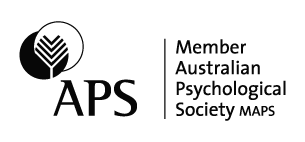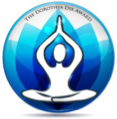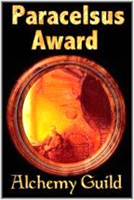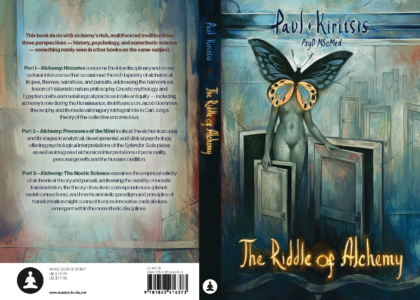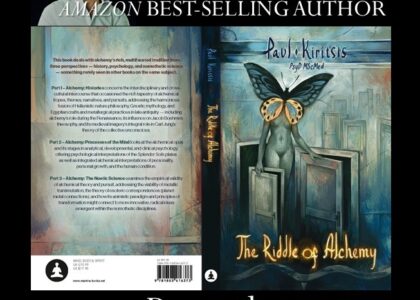
The past few months have been an overwhelming encounter with work, and when I say work I allude to the long, drawn-out process of studying, formulating opinions on certain topics, and writing. In fact all I can recall during this period is reading and writing, and then more some. I also recall being sick quite a bit. First, I capitulated to a heavy bout of the flu and then to a stomach bug which I presume I picked up from one of my laborious sessions at the local gym. Generally speaking, I’ve always taken good care of my body and my health. I eat well, I exercise and lift weights at least five times a week, and I try to get as much rest as possible. The riddle to good health, they say, is triune in nature and resembles an equilateral triangle where each individual side symbolizes one of sleep, diet, and exercise; if you adhere to satisfying these three basic requirements for the optimum functioning of the body, the odds of leading a long and healthy life are definitely on your side. Or are they?
I’ve been following the same basic routines for the past ten years and never have I capitulated so easily to illness on subsequent occasions as I did of late. The obvious answer is that our equilateral triangle doesn’t really take into account the state of our psychic health. Putting an overwhelming amount of stress–whether that be mental, physical or a combination of both– on one’s self for extended periods of time or trying to work above one’s mental and/or physical capacities can so exhaust our vital reserves as to compromise our immune systems indefinitely. This criminal, devolutionary process of descent into the infernal regions of physical illness doesn’t occur spontaneously; it actually occurs quite gradually, like an ocean which eats away at the delicate sandstone of a cliff so that in a few million years or so it might collapse into the seawater. Naturally, the evidence of a thunderous breakdown is there before it even happens. The internal thermostat that works hard to regulate the state of our psychic health, to maintain fundamental harmony in our bodies and minds, and to make certain that our inner will, nature, and state of being are integrated and accurately reflect the experiences we accumulate in the outer world or environment works in pretty much the same manner.
It is that other side of ourselves, the shadowy and often unacknowledged side; the side of our psyche that rears its head only when the ego is absent and speaks to us through a codified, symbolic, and image-based language presented in dreams and fantasies along with fringe phenomena like hypnagogic states and hallucinations. It also operates independently of our conscious will and we are powerless to influence it. I suppose it’s much more fitting to say that it influences us. Some people, often extremely extroverted types, are completely unaware of its existence. Its name? Carl Jung called it the unconscious, denoting everything that stands outside one’s sphere of personal awareness. But upon encountering and getting to know it by engaging in conversations with the inner voice one comes to realize that it is a whole lot more; it’s the side of us that ensures experiences congruent with our own nature are realized and works in a manner comparable to an ever-present guide rather than a teacher or guru. The unconscious rarely intervenes in our lives save for when we are engaging in activities incompatible with our inner life, way of being, and what the inner process decrees suitable for our established personalities. When this occurs the inner state, our personal unconscious, will send out alarm bells and flash warnings that something is wrong and must be corrected. Usually they come in the form of very vivid and disturbing nightmares that wake one from their sleep at night and facilitate restlessness during the waking hours. Nightmares of such intensity and trepidation indicate a crisis that must be dealt with immediately to avoid an imminent compromise of health. This phenomenon is ubiquitous when one examines the breadth and scope of human experiences. Why? Simply because the anatomy of the psyche is the same in every living human being and operates in quite the same way regardless of age, sex, ethnicity, political presentiments, or religious orientation. Disappointingly, I, like a great many others who gradually slip into a workaholic mode, was foolish to ignore alarm bells that were flashed to me in numerous frightening nocturnal visions and I eventually succumbed to two ailments, one after the other.
In retrospect the deplorable state could have been avoided had I made adjustments to austere parameters that I had unnecessarily and unjustly placed on my life. But I didn’t listen; or rather I chose not to listen to my own unconscious will, my own self. I discarded logic and reason for ambition, a balanced lifestyle for a one-sided, colourless, and relentless repetition to be found in paper, blank ink, and human thoughts full of hope and rumination. As a consequence, I suffered a loss of vital strength and a weakened immune system which left me susceptible to an extended bout of flu and an excruciating stomach bug. Thinking about it now, I realize that what instigated the circumstances that led to diminished vitality was a complete absence of self-reflection or contemplation. I deliberately avoided making any frequent assessment of my daily activities, concerns, and preoccupations as to avoid having to face judgement on behalf of my inner self. Being forced to mull over subjective experiences such as decisions, thoughts, attitudes, approaches, and feelings brings about a degree of insight. It’s a socially acceptable form of monologue that forces one to encounter their own shadow (the parts of the psyche deemed negative and less desirable in the eyes of society) in a way that can be frightening, embarrassing, or emotionally and morally challenging. To examine and question these aspects of our own selves and our lives is to derive use from them. One cannot learn from the circumstances of a present situation in order to correct or alter it unless it enters fully into the sphere of their awareness.
There have been many periods of my life spent self-reflecting and out of these intimate encounters with self have come some really profound insights into the fabric of my own existence. The following description is from a journal entry made in March 2011 when I was travelling through Luzon in the Philippines.
It’s really difficult to describe the sad state of affairs here unless one sees it with their own eyes. The rustic folk live in the most dismal conditions; their residences are one to two roomed timber structures with flat rooves made of single gal sheets. The kids are bereft of any warm and comfortable clothes. Some of them are out playing on the roads completely unsupervised. Amidst this poverty is a sprinkling of privately owned and operated five-star motels and Catholic churches bedecked in statues, jewels, and other opulent ornaments that are like a slap in the face for the poor. Not that they would see it that way. For them, faith in God is a prerequisite to being Philippino and somewhat necessary. I guess they think that by endowing the churches and holy shrines with riches and offerings God might be kind in his dealing them fortune and serendipity. Who knows? The little kids staring at us through the windows are probably thinking the same about us. “Poor foreigners. What might they know of life?”
Over and above the poverty I’m really struggling with social conventions and what my poor limited Western mind has perceived to be moral inconsistency. It’s socially acceptable to gawk at someone for hours on and then follow them around a shopping centre. Transsexuals enjoy a privileged and position on the social hierarchy yet Christian dogma is enforced in a way that implies pneumatic incarceration. Someone convicted of drug trafficking gets a life behind bars (a few years ago it was the death penalty) yet child prostitution is acceptable and even encouraged as an income for some poor families. Some of the Phillipino women who want to escape poverty and a life of misery will sleep with any white guy if it means a ticket to freedom. It’s simply craziness and it really challenges me. I also see that there’s a communist veneer to grooming norms happening here. After all, only a sea separates the Philippines from China so there’s no reason why there shouldn’t be influence through trade. All female staff at the motel wear the same deep-red lipstick and blue eye shadow and they all seem to have the same gestures and customs of greeting and dealing with foreigners. “Good evening sir. Yes sir. No sir. Would you like another cappuccino, sir? Would you like your massage now sir?” Is it really necessary to use it in every sentence?
I went to the bookshop the other day. From the genres I could tell that they obviously like their fiction here. I was impressed to see the works of classical dramatists like Euripides and Aeschylus in the history section. There were a lot of Bibles there too. Oh, and a lot of studies and other treatises written about the Bible. As I predicted there was no section for psychology, spirituality, or philosophy. I guess free thinking and freedom of inquiry isn’t really welcome here. It sure made me contemplate how censored everything is. People are only exposed to media that don’t contradict the philosophies and established traditions of the country. The sheep need to be kept tunnel-visioned and looking to one direction only, lest the ruling authorities lose their grip. How can you question the validity of something when you don’t know that an alternative exists? You don’t. Is ignorance bliss? Depends on the context really, doesn’t it? The wisdom that comes with having experienced the yoke of the Philippine Republic is priceless; I now have an even deeper appreciation for my own country, Australia, a nation which believes in freedom of speech, intellectual inquiry, and artistic expression.
I suppose we never really consider to what degree we ourselves are conditioned by what is shown through media outlets like television and the internet until we have an experience of this type. Ivan Pavlov might have been the first physiologist to label a “conditioned reflex” by demonstrating the mechanics of conditioning with his salivating dogs, but it appears the phenomenon has been in use to mould tribes, societies, and nations since the human ego acquired a healthy little existence by transcending unconsciousness. Funny how I hadn’t really given “ethnic” conditioning much oxygen until now…
The excerpt above should give you a clear enough indication about the constituents of self-reflection. Self-reflection or contemplation should be carried out in a private space away from the hustle and bustle of ordinary life. This is your own private time to ponder the day’s events, mull them over, and formulate directions or plans of action where necessary. Characteristically self-reflection will put you in touch with your inner self and the relation of that self to its evolutionary life path at that point in time. The best results tend to come when you make it a habit and record your contemplations in a diary or journal. These are your own private thoughts and memories and should not be read or shown to anyone else unless you choose to do so. Often with inner work of this type you should not have to think much; words should start rolling onto the page once you’ve sat down in a quite space away from any external distractions.
A good starting point is to write about the events of the day or perhaps something of significance that transpired at work. You might examine moral, military, political, anthropological, religious, and philosophical issues, or key areas of your own life like love and relationships, finance, and health. The more venturesome will delve into the inner world of dreams, fantasies, feelings, apprehensions, and possible phobias. There are absolutely no limits as to what you can reflect upon but the most productive type is one that addresses the dearest, innermost concerns of the respective individual. It also helps to establish a private sanctuary to which you can return time and time again for your speculative moments. Self-reflection is very constructive and therapeutic so there’s no reason why you shouldn’t do it. Many will profess that their leisure time is limited but that’s a poor excuse for fobbing off an activity that works wonders on one’s health and wellbeing. You don’t need to dedicate hours to a venture of this type; a few minutes a day is all that’s needed!


